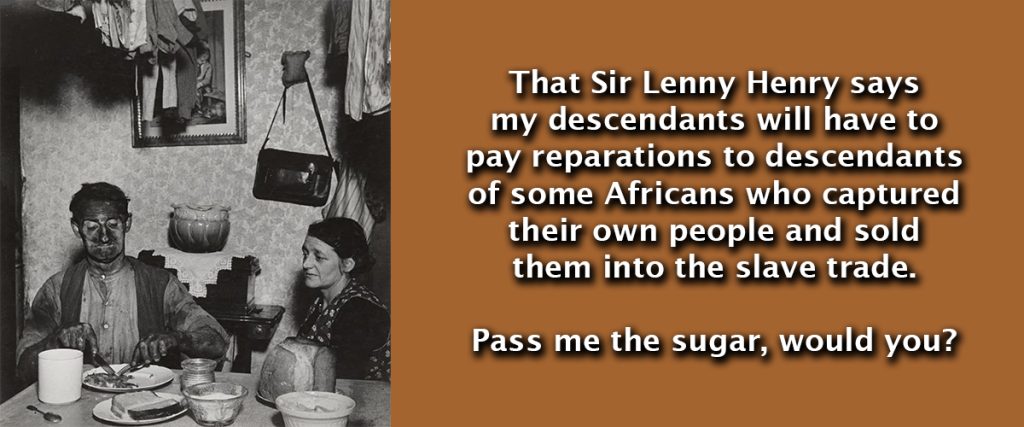One of the main planks of the Reparationists’ argument is that profits from slavery built the British Empire. Their line is that slave owners invested in the new technology that drove the industrial revolution leading to Britain’s global domination. Their contention is they should get a share of the profits.
Marxists have never understood how an economy works, and this is another excellent example.
It is true that slave owners and slave traders made huge personal fortunes from slavery. But there are two important factors to bear in mind.
The first is that the combined revenue from slavery – the trade in slaves, the goods they produced, and earnings from linked industries – was a small proportion of Britain’s total domestic product, estimated at around 2.5% at its peak and could not have financed the industrial revolution.
The second is that if slavery had not existed and there were no profits to be made, that money would still have existed. It would just have been used to buy commodities other than sugar and those merchants would then have been the ones investing in the industrial revolution.
The industrial revolution was not dependent on slavery and was going to happen regardless.
In fact around the time of abolition in the 1830s, there were 800,000 slaves producing 500,000 tons of sugar per year. At the same time, fewer than 200,000 miners in Britain produced 30 million tons of coal. That works out at 625 kilos of sugar per slave versus 150 tons of coal per miner. Sugar production was economically insignificant.
By the time the industrial revolution was at its peak some 30 years later, Britain was producing 125 million tons of coal (60% of the world’s output), 6 million tons of pig iron (50% of the world’s output) and launching 700-900,000 tons of newly built ships (80% of the world’s total) per year.
Slavery was a terrible way to exploit human beings for, ultimately and tragically, such little gain.
